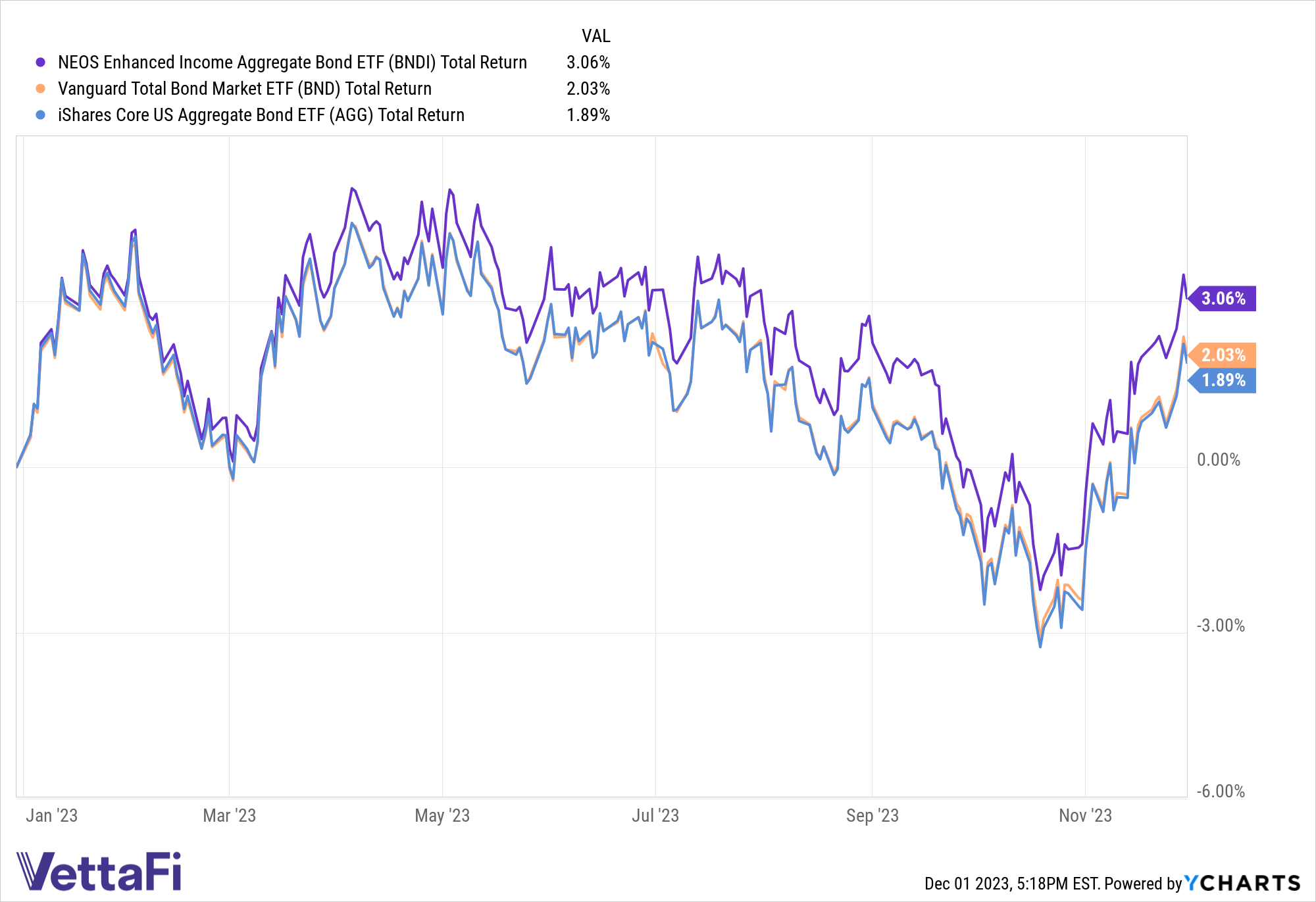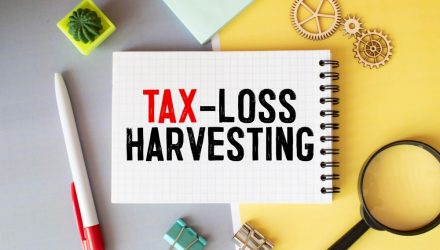‘Tis the season for tax-loss harvesting, and this year presents several opportunities in bonds. Advisors and investors needing to move into a product with similar exposure should consider the NEOS Enhanced Income Aggregate Bond ETF (BNDI). The fund seeks high monthly income while offering outperforming exposure to the broad bond market.
2023 brought with it ongoing challenges for bonds as the Federal Reserve continued aggressive interest rate hikes for much of the year. However, investors increasingly believe that rate hikes may be done as inflation continues to fall. With the changing sentiment came a veritable tidal wave of investment back into longer-duration bonds at the end of November and continuing into December.
BNDI offers enhanced income opportunities in bonds. The fund invests in the iShares Core US Aggregate Bond ETF (AGG) and the Vanguard Total Bond Market Index Fund ETF Shares (BND). The fund has generated better total returns YTD than both funds.

BNDI a Tax-Loss Harvesting Winner for Investors
The income and capital gains BNDI receives from its bond exposures are enhanced by adding monthly income from the fund’s put-option strategy on the S&P 500. The strategy includes selling short puts and buying long puts to protect against volatility.
The strategy may offer positive returns in both flat and rising equity markets. It may also generate positive returns in moderately declining equity markets. This is possible if the premium earned from the puts is greater than the cost to close out the positions. BNDI may also offer a lower correlation to certain risk factors such as duration, credit, and inflation risk.
BNDI’s put options aren’t ETF options but S&P 500 index options. These options are taxed favorably as Section 1256 Contracts under IRS rules. The IRS treats options held at the end of the year as if the investor had sold on the last market day of the year at fair market value. Most importantly, the IRS taxes any capital gains as 60% long-term and 40% short-term, no matter how long the fund held them.
This treatment can offer noteworthy tax advantages. In addition, the fund’s managers also may engage in tax-loss harvesting opportunities throughout the year on the put options.
BNDI currently has an expense ratio of 0.58%.
For more news, information, and analysis, visit the Tax-Efficient Income Channel.

